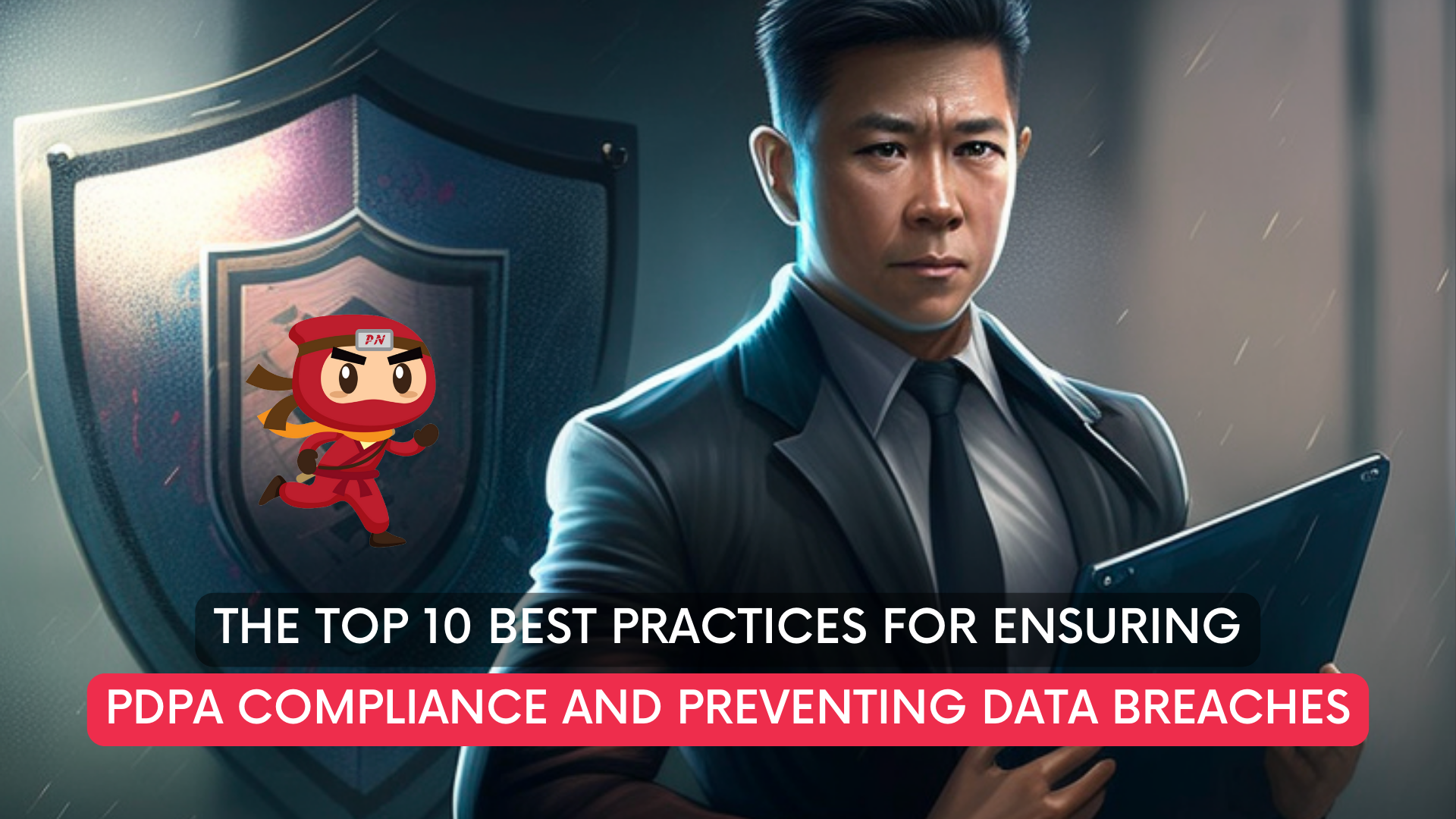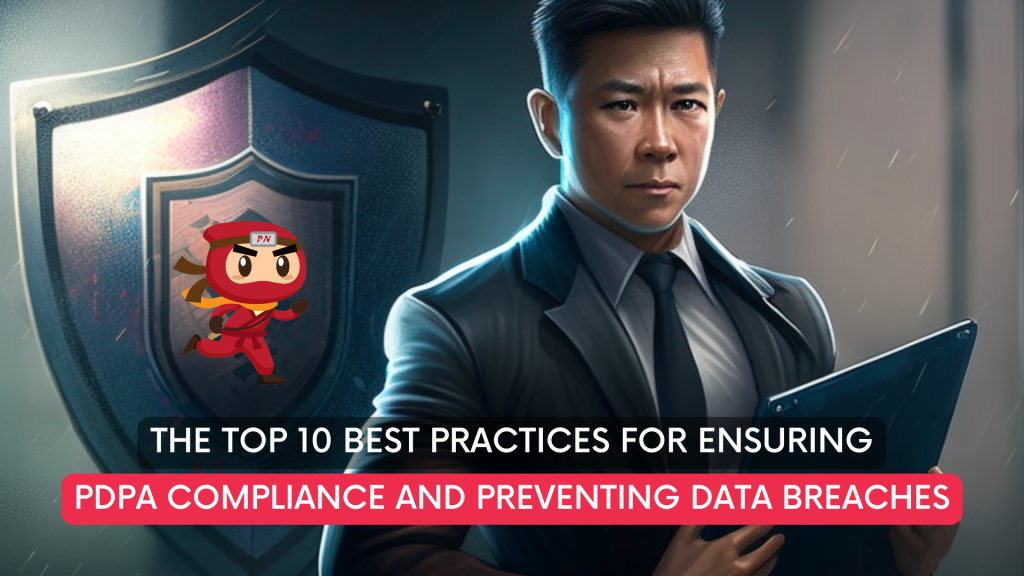KEEP IN TOUCH
Subscribe to our mailing list to get free tips on Data Protection and Cybersecurity updates weekly!







The Personal Data Protection Act (PDPA) is a comprehensive law that regulates the collection, use, and disclosure of personal data by organizations in Singapore. The PDPA is designed to protect the privacy and personal data of individuals and ensure that organizations handle personal data responsibly.
Compliance with the PDPA is crucial for organizations that handle personal data, as failure to comply with the PDPA’s requirements can result in legal and reputational consequences. Non-compliance with the PDPA can result in penalties and fines, and can also damage the reputation of the organization, leading to loss of trust and confidence from their customers.

To ensure compliance with the PDPA, organizations should implement best practices for data protection and prevent data breaches. Here are the top 10 best practices for ensuring PDPA compliance and preventing data breaches:
Organizations must familiarize themselves with the PDPA and understand their obligations when collecting, using, and disclosing personal data. This includes the obligation to protect personal data against unauthorized access, collection, use, and disclosure, and the requirement to notify affected individuals and the PDPC in the event of a data breach.
Organizations should have a data protection policy in place that outlines their data protection obligations, including how they will respond to data breaches. This policy should also include procedures for identifying and containing breaches, as well as a plan for notifying affected individuals and the PDPC.
Organizations should implement appropriate security measures such as firewalls, encryption, and access controls to prevent unauthorized access to personal data. Regular monitoring and testing of systems and processes can also help to ensure that they are secure.
Organizations should conduct regular risk assessments to identify potential vulnerabilities and areas where data breaches are likely to occur. This can help to ensure that appropriate security measures are in place to prevent data breaches.

Organizations should train employees on data protection practices and their obligations under the PDPA. This includes training on how to handle personal data, how to identify and report data breaches, and how to respond to data breaches.
Organizations should limit access to personal data to employees who require it to perform their duties. Access controls can be used to restrict access to personal data based on the employee’s role and level of authorization.
Organizations should ensure that any third-party vendors they work with comply with the PDPA and have appropriate security measures in place to protect personal data.
Organizations should conduct due diligence on data transfer agreements to ensure that personal data is protected when it is transferred to third-party vendors or other countries.
Organizations should regularly review and update their data protection policies and procedures to ensure that they remain up to date and effective.
Organizations should conduct regular audits and assessments to ensure that they are complying with the PDPA and their own data protection policies and procedures. This can help to identify potential vulnerabilities and areas for improvement.
Implementing the best practices for ensuring PDPA compliance and preventing data breaches is essential for organizations that handle personal data in Singapore. By implementing these practices, organizations can protect the personal data of their customers, avoid legal and reputational consequences, and maintain the trust and confidence of their customers.
Your appointed DPO can work with you on ensuring that there will be policies in place to prevent unwanted data breach, especially if your organisation also handles personal data.
A Data Protection Officer (DPO) oversees data protection responsibilities and ensures that organizations comply with the Personal Data Protection Act (PDPA). Furthermore, every Organization’s DPO should be able to curb any instances of PDPA noncompliance and data breaches as it is the officer responsible for maintaining the positive posture of an organization’s cybersecurity.
DPOs complement organizations’ efforts to ensure that the organisation’s methods of collecting personal data comply with the PDPA. It also ensures that policies are set in place to make sure that there will be no instances of data breaches in the future.
Don’t wait any longer to ensure your organisation is PDPA compliant. Take our free 3-minute PDPA Compliance Self-audit checklist now, the same “secret weapon” used by our clients to keep them on track. Upon completion, we will send you the results so you can take the necessary action to protect your customers’ data. Complete the free assessment checklist today and take the first step towards protecting your customers’ personal data.